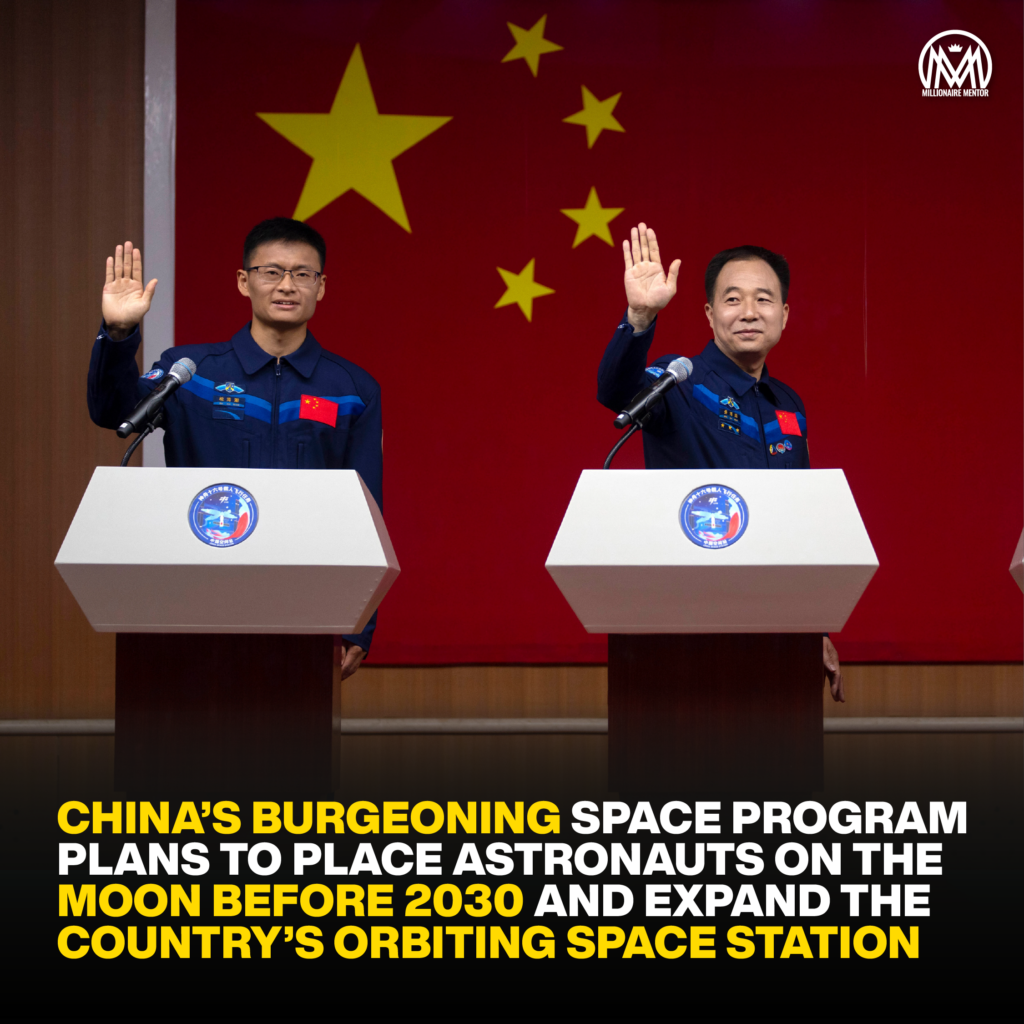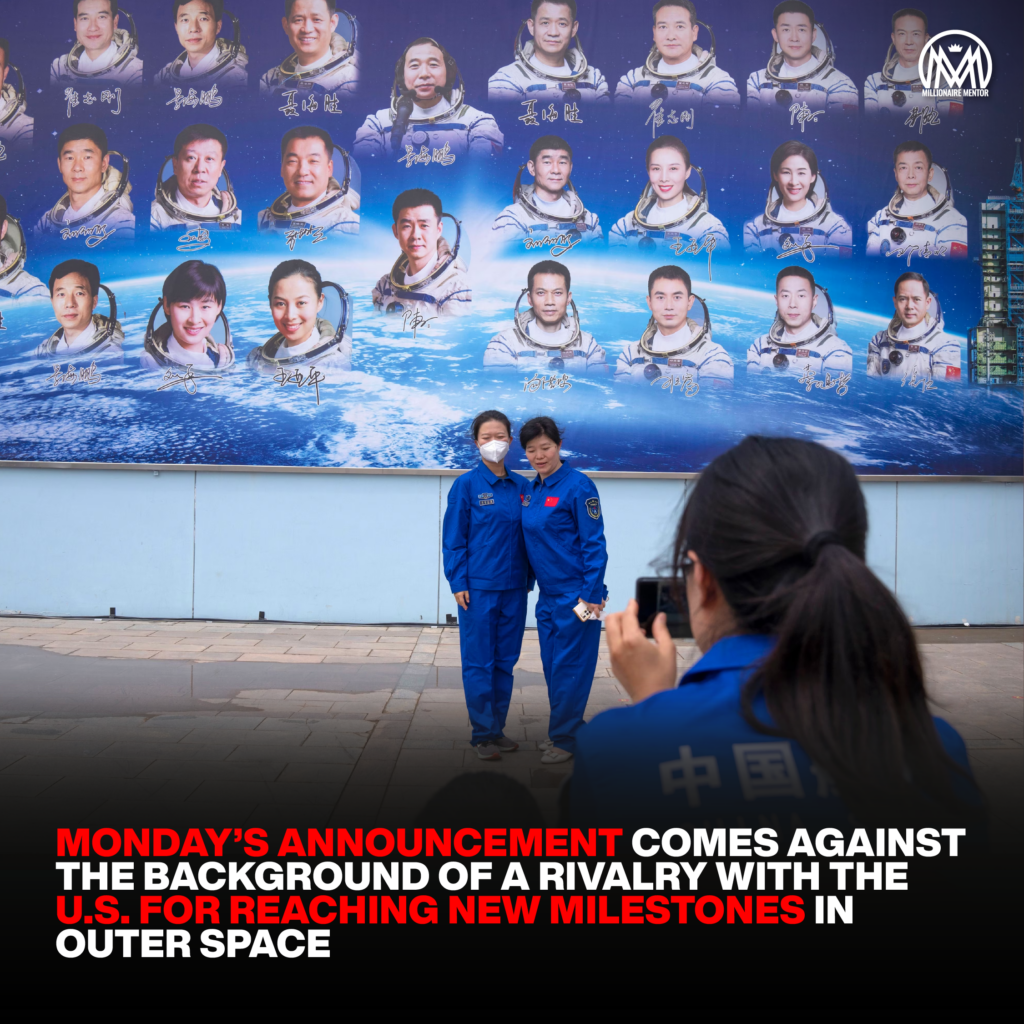China’s space exploration program has taken a significant leap forward with the announcement of china plans to send astronauts to the moon before 2030. This bold endeavor, unveiled by China’s National Space Administration (CNSA), aims to establish China as a major player in lunar exploration and further propel the nation’s space ambitions. If successful, China will join an elite group of countries that have achieved the remarkable feat of human lunar landings. Let’s delve into the details of China’s lunar mission plans and the potential implications for scientific discovery and space exploration.
China plans to Expanding Space Program:
China’s space program has witnessed remarkable progress in recent years, with notable achievements such as manned missions, lunar rovers, and satellite launches. Building on these accomplishments, the country is now setting its sights on reaching the moon. While China’s previous lunar missions, Chang’e 3 and Chang’e 4, successfully landed robotic rovers on the lunar surface, sending astronauts would mark a significant milestone in the nation’s space endeavors.
Technological Challenges and Innovations:
A human lunar landing is a complex and technically demanding undertaking. China’s plan to send astronauts to the moon involves overcoming numerous challenges, including spacecraft design, life support systems, and mission logistics. The CNSA will need to develop and perfect the necessary technologies, including a crewed spacecraft capable of withstanding the rigors of deep space travel and lunar surface operations. The mission will also require advancements in navigation, propulsion, and communication systems to ensure the safety and success of the astronauts.
Scientific Discovery and Lunar Exploration:
China’s lunar aspirations hold tremendous potential for scientific discovery and exploration. A human presence on the moon opens up new possibilities for in-depth research, including geological studies, lunar sample collection, and the establishment of long-term scientific bases. By conducting experiments and gathering data on the lunar surface, Chinese astronauts could contribute to our understanding of the moon’s formation, evolution, and potential resources. Such knowledge could pave the way for future lunar missions and the establishment of sustainable human presence beyond Earth.
International Collaboration and Partnerships:
China’s lunar mission plans also offer opportunities for international collaboration and partnerships in space exploration. Cooperation between China and other space-faring nations can lead to shared scientific objectives, resource sharing, and technological advancements. Collaborative efforts in space exploration have the potential to transcend political boundaries and foster a collective spirit of discovery and progress for the benefit of all humankind. China’s lunar ambitions provide a platform for such collaborations and could contribute to a more inclusive and cooperative approach to space exploration.
Implications for China’s Global Influence:
China’s quest to send astronauts to the moon aligns with its broader goal of becoming a global leader in science, technology, and innovation. Successful lunar missions would elevate China’s status as a spacefaring nation and reinforce its position as a key player in the international space community. It would also demonstrate China’s technological prowess and its ability to undertake complex and challenging missions. China’s lunar ambitions could influence the geopolitical landscape and potentially spark increased competition in space exploration among other nations.
China’s announcement of plans to land astronauts on the moon before 2030 signifies a significant milestone in the nation’s space exploration journey. If achieved, this ambitious endeavor will not only mark a major milestone for China but also contribute to the collective knowledge and understanding of the moon. The scientific discoveries and technological advancements resulting from China’s lunar missions have the potential to shape the future of space exploration and pave the way for further human exploration beyond Earth. As China progresses towards its lunar goals, the world eagerly awaits the realization of this remarkable feat and the new frontiers it may unlock.


Trending News Articles
 OpenAI Nears $1 Billion of Annual Sales as ChatGPT Takes Off.by Jason Stone●August 30, 2023
OpenAI Nears $1 Billion of Annual Sales as ChatGPT Takes Off.by Jason Stone●August 30, 2023 “Our Population Is In BIG DANGER” | Jordan Petersonby Jason Stone●July 27, 2022
“Our Population Is In BIG DANGER” | Jordan Petersonby Jason Stone●July 27, 2022 Nvidia’s Red-Hot 2024 Start a Bright Spot as S&P 500 Eyes Recordby Jason Stone●January 15, 2024
Nvidia’s Red-Hot 2024 Start a Bright Spot as S&P 500 Eyes Recordby Jason Stone●January 15, 2024 Douglas Murray’s HEATED CLASH Over Mass Immigration To Europeby Jason Stone●April 12, 2023
Douglas Murray’s HEATED CLASH Over Mass Immigration To Europeby Jason Stone●April 12, 2023






